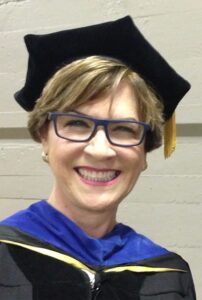• By Celina Moreno, J.D. • IDRA Newsletter • August 2025 •
“Strong public schools are not only possible; they are essential.” 
“Our dream and our work at IDRA is for a future in which the color of a child’s skin, the language a child speaks and the side of town that a child comes from are no longer considered barriers to a great education and a good life.”
“Access to college is a promise we must keep to every child.”
“The United States is still uniquely committed to one system that prepares us all for living in a great democracy – we should preserve this commitment. It is not ok to turn our public schools into poorly-funded government schools; public schools belong to all of us. It is not ok to turn our public schools into private schools, accountable to private boards; public schools are accountable to all of us. It is not ok turn to our public schools into charity schools; public schools are civic institutions, a central part of our social contract. Keeping the public in public schools is essential.”
“The bottom line is: schools are responsible for the education of children – for all children, be they Black, Brown, white, poor, rich, female, male, disabled, non-disabled, English-speaking or not.”
“Children need places that are safe, that are nurturing, that welcome their families, that welcome their culture, their language and have them really be able to learn and prepare themselves for life.”
“When English learners are treated with dignity and offered excellent instruction, they thrive – and so does our democracy.”
“You cannot build democracy on a foundation of inequality.”
“We at IDRA are for students – all of them. That is why we publish seminal research and follow-up over time, why we testify in key court cases and file court briefs, why we develop school finance alternatives that lead to justice in education, why we design and work with others to put in place ground breaking legislation, why we develop curriculum and materials that open hearts and open minds, why we model effective professional development, why we organize and lead and nurture education coalitions, why we create innovations in student voice and in authentic family leadership. In a word, children are why we exist.”
“Being poor doesn’t affect your brain. It’s what society does to you when you are poor that affects your brain.”
“When students are placed in positions of responsibility and are given the support needed to succeed, they not only meet expectations but often exceed them.”
“Real, lasting change in schools comes when people are engaged at all levels, from state capitols to board rooms, from classrooms to community centers and kitchen tables, and where people have the knowledge they need to take the right steps on behalf of all children.”
“We live to some purpose: Helping schools work for all children and valuing children, educators, families and communities. We care deeply about children and believe that the lives and choices of many hang in the balance of what you and I as educators are able to provide today.”
“Bold innovation has been our way of disrupting the habit of schools and policymakers to act on the mistaken belief that students’ language, immigrant or migrant status, zip code, parents’ educational level, or color of skin are the reasons for student underachievement. For fifty years, we have asserted and demonstrated that students who are poor or immigrant, are of one color or another, or live in poor neighborhoods, or do not speak English, do not make poor schools. Rather, underfunded schools, poor policy and poor educational practices make for underachieving students.”
“I believe that so much is riding on the success of our public schools: democracy, overall economic strength, opportunity for all. I also believe that when we look at education from the perspective of a human right, we are talking about the powerful future not only of society but of each person and in each group in our society. This is a great promise.”
“We need a new national commitment to high school graduation for all – and all must mean all – high school with a path to higher education. Investment in change clearly must go beyond discrete dropout prevention programs. It must reflect our full commitment to quality public schools in all neighborhoods for children of all backgrounds.”
“I ask you to imagine. Imagine a school, a city, a state, a country in which the amazing gifts of our young people are acknowledged, built on and celebrated. Imagine schools where every child really counts. As leaders in this community, we can make it happen. It’s up to us. But first, we have to believe it, truly believe that what we’ve imagined can be real.”
“At the end of this day, I am left with deep gratitude for two facts: (1) we are alive, and (2) we are held up by a love all around us.”
[© 2025, IDRA. This article originally appeared in the August edition of the IDRA Newsletter. Permission to reproduce this article is granted provided the article is reprinted in its entirety and proper credit is given to IDRA and the author.]



